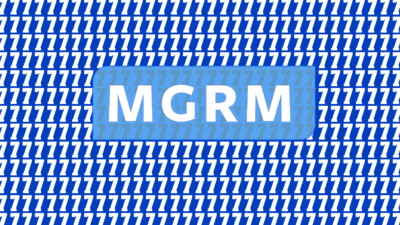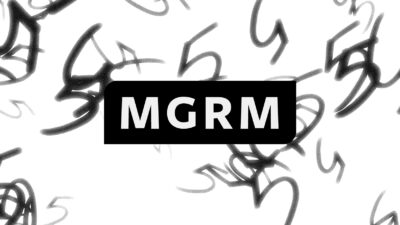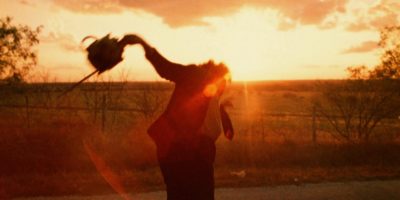Dr. Dre’s THE CHRONIC vs. The Cure’s WISH. Where do you even begin to discern the differences between the two? One is a groundbreaking solo release from one of hip hop’s most important figures, the other is a late-career, excellent release from one of the most influential bands of all time. The answer is clear: THE CHRONIC. It’s clearly the more “important” album, and probably the better album as odd as is to pit the two against each other, but still I hovered my mouse over WISH for just a second longer than I care to admit! “A Wish To Elise”? “Friday I’m In Love”? “From The Edge Of The Deep Green Sea”? All-timers by one of my favorite bands.
This kind of panicked decision making is part and parcel to Kent Beeson’s Best Albums brackets on Twitter. Those who watched the end of the 1992 bracket go down earlier this year would eventually see THE CHRONIC lose a respectable matchup in the tournament finals against #1 seed AUTOMATIC FOR THE PEOPLE, but it left in its wake albums like WISH, Pavement’s SLANTED AND ENCHANTED, and Godflesh’s PURE.
Beeson’s several years into a mission to figure out the best albums of the ‘90s year by year, and as he and I email back and forth he’s about to start tackling 1999, a year that’s filled with plenty of still-active acts like Built to Spill, blink-182, Magnetic Fields, Beck, The Roots, and Slayter-Kinney. It’ll be a tournament without an obvious ringer—69 LOVE SONGS as a #1 seed is going to be something to watch play out for sure. This should make for some high drama as it plays out over the next several months on Twitter. Read my interview with Kent and scroll below to find the entire bracket for 1999!
I think the ability to retrospectively delineate what 128 albums from a given year are going to qualify 20+ years later is a massive undertaking. I hope you can maybe elaborate a bit on that process, not just how you arrive on what albums are included, but also how they’re seeded.
Kent Beeson: There are two phases to putting a tournament together: the nomination phase and the seeding phase. During the nomination phase, I ask my followers to send in a list of every album they want considered for the tournament. I then gather all the ballots and count every mention of an album as a vote. This is the part that requires the most effort, because I literally mean every album they want—I can get lists of 50 or more albums! I do this because I don’t want anyone to have to make any tough choices about what to include or exclude. I tally all the votes, and since I only have 128 slots, I see how many votes qualify an album without going over 128. For example, there might be 110 albums with eight or more votes, but if you extend it to seven or more, you end up with 140 albums. So in that case, 110 albums are entered into the tournament, and that leaves me with 18 open slots to fill as I see fit. This usually means either I pick them, or I do contests to let people add an album of their choice.
Then, once all 128 albums are chosen, I set up a Google Form with all the albums listed, and people can vote for as many or as few albums on the list as they want. And like in the nomination phase, I total the votes up, and the album with the most votes is seed #1, second most is seed #2, and so on. The common factor here is that I’m letting my followers make most of the decisions. It wasn’t always like that; I’d say the story of my Best Album Twitter is the movement from me having total control to letting everyone else have more ownership of it.
It’s a bit of work, but once it’s done, the tournament almost runs itself.
You’re not the only person who has done large-scale brackets on Twitter, but certainly in the world of music your Best Albums brackets feel the most prolific, studied, and in a lot of ways important. What caused you ultimately to start doing them?
KB: First, thank you for calling them studied and important! I have absolutely no idea if they’re important, if I’m honest, but I do like them to be called studied, although I’m not 100% sure that’s true, either. As for being prolific, that, I think, is a matter of just tenaciously sticking with this for nearly five years. (My first @bestalbum95 post was in November 2015.) A lot of other brackets, if the manager doesn’t have a lot of followers to begin with, can struggle with getting vote totals that feel “significant,” for lack of a better word. If you’re running a Twitter bracket for any reason other than the joy of running it, that can feel frustrating. The first match of my first tournament had 19 total votes, and there was one match that had a total of six—for comparison, this last tournament, matches would routinely break 300 votes.
And even if the manager does have a lot of followers and can get massive amounts of votes, I’ve noticed that they often run multiple matches in a day, and usually from their own Twitter account, not a dedicated one. I don’t know their reasons for this, but to me that feels a little like, “Let’s get this over with.” There’s no right or wrong way to run a Twitter bracket, but that attitude, whether it’s real or my projection, is antithetical to my own. I want the match to be the focus. I want discussion to center on the match. I want people, as dumb as this sounds, to savor the match. And I want to signal that I’m in it for the long haul.
But to answer your actual question, it’s a pretty mundane reason. I’ve always enjoyed brackets, despite not playing sports, and, generally speaking, not even watching sports. I like competition. I like the story that’s inherent in competition. I don’t like sports, but I love sports movies. So around 2015, it seemed like, with sites like Grantland, there were a lot of brackets appearing, only dealing with pop culture, which, as you can imagine, I found very exciting. At the same time, I recall seeing a lot of 20th anniversary music retrospectives, all these 1995 albums being revisited, and I just thought, “What if I made my own bracket for 1995?”
Now, the part that a lot of people don’t know is that, originally, this 1995 bracket was just for me. I was going to make the bracket, listen to the albums, and pick the winners, then report back on Twitter. And I did do that for a very short time, for maybe six matches. But I stopped. You may think it was because the scope of the project was so big, 128 sessions of listening to two albums. That was the fun part! I gave up because, and this probably sounds silly as well, the responsibility of picking a winner became an overwhelming burden. Life or death. A gladiatorial thumbs up or thumbs down. How could I decide? How could I tell a good friend that I preferred the Goo Goo Dolls over the obscure indie band they lobbied for me to include?
So I stuck it in a drawer, so to speak. Then a few months later, Twitter debuted their poll functionality, and I thought, “Oh, I see how I can do this now.”
Why the ‘90s rather than other decades of music?
KB: Absolutely no thought went into that choice other than, as I said, I kept seeing retrospectives for 1995 music. And I love ‘90s music, it was very formative for me as an 18-27 year old, and I love reintroducing it back into my life via the tournaments. But I’m an ‘80s kid at heart. I’m more excited to get back there in the tournaments than I am by moving forward into the 2000s. There’s lot of 2000s music I like, but I feel like I missed huge swaths of it. I get more excited for it when I think of those potential tournaments as an opportunity for my followers to educate me, to tell me what was important in those years.
One of the reasons I call them both studied and important is that I do think there’s something kind of fascinating that says a lot about what we now value decades later about the ‘90s, and you see that in the selections and the actual tournament. For example, the TWIN PEAKS: FIRE WALK WITH ME soundtrack getting as far as it did in this most recent 1992 tournament says a lot about our current culture; in 1992 I’m not sure we’d consider that collection of music to be as important as, say, SLANTED AND ENCHANTED, but in 2020 I think it’s fair to say that Angelo Badalamenti is in some ways as important as Pavement in the modern music sphere. By your own estimation do you think this tournament is an accurate way of re-assessing music retrospectively like that?
KB: Well, I can only give an answer that is kind of obvious and anticlimactic: I do think the tournament is a fairly accurate way of reassessing the music—for this particular place and time. I have no doubt that if I redid the 1992 tournament in 2030, the results would be different. Maybe SLANTED AND ENCHANTED would eke out a win. Maybe DRY would get a better seed and an easier path to the top. Maybe PLAY WITH TOYS would be more available and everyone could see how awesome it is. Maybe by that time the guys in Darkthrone have saved the world BILL & TED-style, everyone loves them.
Of course, though, this reassessment is limited by my audience. I think it skews white, older, male, college-educated, and tends to favor what we called in the ‘90s “alternative.” It looks like me, in other words! So every choice the tournament makes, which albums get in and which don’t, what is the #1 seed and what is the #128 seed, is through a very specific lens. And after five years, we know some things about the tournaments. Hip hop goes far if it’s already popular; metal and country don’t do well at all. Jazz and classical are nearly unheard of. I would love for my audience to be more diversified, especially in race, age, and gender. But I have no idea how to do that, or even if there is anything I can do.
That makes me wonder how this audience would fare with the 2000s. Like you say, that’s an era you’re less familiar with. I wonder what results semi-fresh ears on that era of music would yield. I’m younger than you, I remember music from the tail end of the ‘90s well and am a big fan of that decade musically, but certainly a lot of these albums were new to me (shout out to Madonna’s RAY OF LIGHT, a real revelation from following along on the 1998 bracket).
KB: My suspicion, and I may be wrong, is that my audience, unlike myself, kept up on music in the 2000s, and are pretty well-versed in it. (I’m not completely out of the loop for that decade. In 2006, a good friend let me copy her entire iPod onto my computer, and I got a quick lesson in mid-2000s music. This is how I learned about Death Cab, Spoon, The Postal Service, etc.) But it does make me wonder if my ignorance makes me a bad candidate to be doing those tournaments, or counter-intuitively, a good one.
Do any moments stick out over the last five years that you found to be particularly enlightening about the ‘90s? Any moments that just flat out went against what you’d have assumed this specific audience would vote towards?
KB: Short answer: No, not really! Which is kind of disappointing, but with jumping around from year to year, and just how big any given year is in terms of album releases, it’s just too big for me to contain in my head and process in that way.
Longer answer: This seems like a good place to talk about the major turning point when the tournaments stopped being a “me” thing and more of a “we” thing, and when I started to understand my audience.
For the first three tournaments (1995, 1996, 1994), I determined the seeds myself. Just whatever I thought felt right. Starting with the 1996 tournament, I started what I called an “enthusiasm survey” intended to clue me in on how popular or unpopular an album was. The idea was to use this information to adjust my seed rankings. Did this album that I’d never heard of have a deeper fanbase than I was aware of? Then I’d give it a higher seed. I should note that this is exactly how the seed voting is now done, the only difference being that the results were only suggestions.
I listened to Digable Planet’s BLOWOUT COMB for the 1994 tournament, and thought it was terrible. (Still do!) Then the results for that year’s enthusiasm survey came in, and it got a lot of votes, enough to put it in the top 30 if I was calculating seeds. I ended up putting it at #117. I thought I knew better, and when the tournament started, the voting body would see it as I did.
It went up against seed #12, Green Day’s DOOKIE, a certifiable classic, historically important, I’d argue, and probably my favorite of that year. DOOKIE got creamed, 144-118. BLOWOUT COMB went all the way to Round Four, defeated by Pavement. So to answer your question, I learned that Digable Planets were still cherished by this audience, which surprised me. But it was also the moment when I knew I had to give up some control of the tournament, because my audience knew more than me.
I would be remiss if I didn’t ask about “The Policy,” as it’s known. Earlier this year my proud young Arizonan sons the Gin Blossoms and their much higher-seeded album NEW MISERABLE EXPERIENCE were massively upset by James’ SEVEN in round one. This is not the first time that’s happened (and didn’t technically trigger “The Policy” as it’s known), nor the first time we’d seen something like that happen, with James upsetting Björk a few years earlier, implying that weirdly maybe James has a rabid single album voting base… I’m shocked this kind of thing doesn’t happen more often given how volatile things can be on Twitter. You’ve handled it pretty diplomatically, or at least as diplomatically as one could given it’s a surreal phenomenon. Walk me through the night James upset Björk and the kind of immediate feelings of that moment and how you feel like it was handled with a bit of retrospect.
KB: The match was Björk’s DEBUT (seed #3) versus James’ LAID (seed #66). I went to bed that night with DEBUT at around 70% of the vote, which at that time was around 150 votes. When I woke up the next morning, the percentages had flipped, with LAID up by hundreds of votes. I honestly didn’t even register what happened at first, it was so outlandish. But once I did, I knew immediately that James fans in the U.K. had found the poll. This had happened before in an earlier tournament, with Afghan Whigs fans, so it wasn’t unprecedented, but it’s always a little shocking, a little weird. It’s weird because it feels unfair but there’s nothing rationally unfair about it—people are simply voting. At the same time, it’s a kind of loophole, and it needs to be closed. But then again, you don’t want to hurt anyone’s feelings, especially since they technically didn’t do anything wrong. And so forth.
LAID won the match, 812-519. The “Policy” (which hadn’t been fully written out at this point) has essentially two parts. The first part is, did an album win with enough votes to win against any other album? Did it win with enough votes that it could theoretically win any and all matches? If so, that’s strike one. The second part is, did an album do that twice? That’s strikes two and three, and it’s out. There are exceptions to all this, but that’s basically it.
LAID got that one strike, and I explained, to the best of my ability and the best I could on Twitter, what would happen if it got strikes two and three. So most of my memories of that day were James fans yelling at me on Twitter. And I’ll admit, it was a bit rough. I’m not one of those hardened-by-the-internet types. But I wouldn’t do it any differently. I’ve never had to disqualify an album (knock on wood) and if I ever do, it will hurt tremendously. But I have to have some standards. It’s not a free-for-all.
I want to make sure to ask about the upcoming bracket. Perhaps this is more my age speaking, but I feel like this upcoming 1999 bracket is as excited for a tournament as I’ve been since I’ve been following them the last several years. Any tournament that has the potential to match up ENEMA OF THE STATE against KEEP IT LIKE A SECRET is something that I can get behind. What records are you personally excited about from this year? Any dark horses you want to flag?
KB: I’m definitely glad somebody’s excited; when I first looked at some of the big albums, I got a little deflated, and I know there are people who find this year’s lineup uninspiring. I got more excited when I realized there was no 800-pound gorilla, and that, maybe for the first time, the field was wide open. I’m betting any of the, say, first 10 seeds have a claim for Best Album of 1999.
My top five of 1999 are KEEP IT LIKE A SECRET, THE WHITE STRIPES, THE BATTLE OF LOS ANGELES, THE HOT ROCK, and U-God’s GOLDEN ARMS REDEMPTION, which isn’t in the tournament and I implore your readers to check out. I know there are bigger and flashier Wu-Tang members, but this one’s terrific and doesn’t deserve to be forgotten.
Some albums that are in the tournament that I hope aren’t slept on: Botch’s WE ARE THE ROMANS, which is loud and math-y and flies the Converge flag for this year; Choking Victim’s NO GODS/NO MANAGERS, a punk/ska album so angry it makes Rancid look like blink-182; Faye Wong’s LOVERS & STRANGERS, a terrific trip-hoppy pop album; and Billie Piper’s HONEY TO THE B, which didn’t get anywhere in the U.S. because, I assume, Britney Spears was taking up all the oxygen. *Whispers* I think it’s better than …BABY ONE MORE TIME?
Another one I like, that apparently was popular in Canada, is Matthew Good Band’s BEAUTIFUL MIDNIGHT. I must confess I probably like it for the wrong reason, which is that it sounds like Coheed & Cambria if they ditched the prog-metal and went for an AOR, radio-friendly sheen.
Follow along with the 1999 Bracket over on Twitter (@bestalbum95)!











Comments